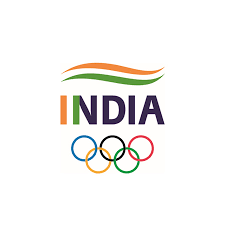Introduction
The Indian Olympic Association (IOA) plays a pivotal role in shaping the Olympic movement in India. Since its inception in 1927, the IOA has been instrumental in promoting sports, coordinating India’s participation in global sporting events, and ensuring the development of athletes across disciplines. Over the years, it has grown into a powerful institution, representing India at the Olympic Games, Commonwealth Games, and Asian Games.
This blog explores the history, foundation, structure, and impact of the Indian Olympic Association in fostering sports excellence in the country.
History of the Indian Olympic Association
India’s First Olympic Participation (1900)
India’s journey in the Olympics began in 1900 at the Paris Games, where Norman Pritchard, an Anglo-Indian athlete, became the first Indian to compete and win two silver medals in athletics. This marked the beginning of India’s association with the Olympic movement.
Formation of a National Sports Body (1920-1927)
During the 1920 and 1924 Olympic Games, Indian athletes competed under the British administration without a national governing body. Recognizing the need for an organized sports federation, Sir Dorabji Tata proposed the formation of a national sports body to manage and promote Olympic sports in India.
In 1923-24, a provisional All India Olympic Committee was formed, leading to the organization of the All India Olympic Games (which later became the National Games of India). Following this, in 1927, the Indian Olympic Association (IOA) was officially established, with Sir Dorabji Tata as the founding President and Dr. A.G. Noehren as the Secretary-General.
Foundation and Structure of the Indian Olympic Association
Legal Framework
The Indian Olympic Association was established as a Non-Profit Organization under the Societies Registration Act of 1860. As a recognized member of the International Olympic Committee (IOC) and the Olympic Council of Asia (OCA), the IOA functions as the official governing body for Olympic sports in India.
Governance and Membership
The IOA consists of various stakeholders, including:
- National Sports Federations (NSFs): Governing bodies of Olympic sports in India
- State Olympic Associations: Regional representatives managing sports at the state level
- IOC Members: Representatives of India in the International Olympic Committee
- Multi-Sport Organizations: Associations managing multi-disciplinary sports
The IOA is currently managed by a 32-member Executive Council, which oversees sports policies, international representation, and athlete development programs.
Role of the Indian Olympic Association in Indian Sports
1. Representation at International Sporting Events
The Indian Olympic Association is responsible for coordinating India’s participation in major international sporting events, including:
- Olympic Games (Summer & Winter)
- Commonwealth Games
- Asian Games
- South Asian Games
- Youth Olympics
The IOA ensures that Indian athletes meet international standards and compete at the highest levels globally.
2. Development of Sports Education & Olympic Studies
Beyond international representation, the IOA has taken significant steps toward sports education and Olympic studies. The association collaborates with various institutions to:
- Develop training programs for athletes and coaches
- Promote research in sports sciences
- Encourage youth participation in sports
3. Organizing National Sports Events
The IOA plays a key role in organizing national-level sports events, such as:
- National Games of India – a multi-sport event featuring the best athletes from different states
- State Olympic Games – conducted at the regional level to encourage grassroots sports development
These events serve as a platform for young athletes to showcase their talent and gain exposure at the national and international levels.
4. Promoting Women’s Participation in Sports
The IOA has been actively promoting gender equality in sports by encouraging women’s participation in various disciplines. Indian women athletes like Mary Kom, P.V. Sindhu, Mirabai Chanu, and Saina Nehwal have brought global recognition to the country.
Through initiatives like women’s sports programs and scholarships, the IOA aims to increase female representation in coaching, officiating, and administration.
5. Supporting Athletes & Providing Financial Assistance
The IOA works closely with government bodies like the Ministry of Youth Affairs and Sports (MYAS) and private sponsors to:
- Provide financial support for athletes’ training
- Offer scholarships and sponsorships for talented players
- Ensure access to world-class coaching and infrastructure
6. Strengthening India’s Olympic Bid
The IOA has been advocating for India to host future Olympic Games, enhancing the country’s reputation as a global sports hub. In recent years, there have been discussions about India’s potential bid for hosting the 2036 Summer Olympics.
Challenges Faced by the Indian Olympic Association
Despite its achievements, the IOA has faced several challenges, including:
1. Governance and Administrative Issues
The association has faced allegations of political interference and internal disputes, impacting its efficiency in sports management.
2. Infrastructure and Funding Constraints
While India has world-class athletes, sports infrastructure in many regions remains underdeveloped. The IOA continues to push for better training facilities and financial support for athletes.
3. Unequal Development of Sports
Some sports, like cricket, receive overwhelming attention and funding, while Olympic sports often struggle for recognition and sponsorships. The IOA aims to balance resource allocation across all sports disciplines.
Recent Developments and Future Goals
1. Strengthening Ties with International Committees
Recently, the IOA has focused on strengthening its ties with international organizations like the International Olympic Committee (IOC) and Commonwealth Games Federation (CGF).
2. Boosting India’s Performance in Olympics
With initiatives like the Target Olympic Podium Scheme (TOPS) and advanced sports infrastructure, India aims to improve its medal tally in upcoming Olympic Games.
3. Enhancing Grassroots Sports Development
The IOA is working on programs to identify and nurture young talent from rural areas, ensuring that India produces world-class athletes across different sports.
Conclusion
The Indian Olympic Association has played a pivotal role in shaping India’s sports landscape, ensuring the country’s strong representation in global sporting events. From its historic roots in 1927 to its continued efforts in promoting Olympic sports, athlete development, and gender equality, the IOA remains a crucial organization in India’s sporting success.
With a clear vision for the future, the IOA aims to bring more Olympic medals home, promote grassroots sports, and establish India as a major global sports powerhouse. As India continues to make strides in international sports, the role of the Indian Olympic Association will be more significant than ever.





